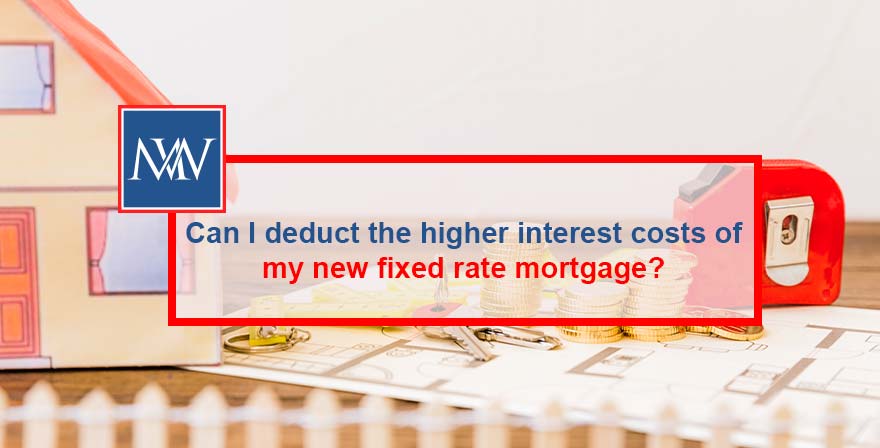
Can I deduct the higher interest costs of my new fixed rate mortgage?
Landlords coming to the end of their fixed rate mortgage deal are likely to be paying considerably more in interest when they remortgage. The extent to which tax relief is available for interest payments depends on the type of let, the type of property and whether the business is an unincorporated property business or operated through a company.
Scenario 1: unincorporated landlord and residential lets
Unincorporated landlords letting residential property (other than as a furnished holiday let) face the harshest regime when it comes to securing tax relief for interest and finance costs. The costs cannot be deducted in calculating the taxable profit for the property rental business. Instead, relief is given as a tax reduction equal to 20% of the lowest of the following amounts:
- the landlord’s interest and finance costs;
- the profits of the property business after taking account of any brought forward losses; and
- the landlord’s adjusted net income (income after losses and reliefs but excluding dividend and savings income to the extent that it exceeds the landlord’s personal allowance).
The tax reduction cannot create a tax refund, and where the profits of the property business and/or the landlord’s adjusted net income are less than the interest and finance costs, the tax reduction is capped.
Where it is not possible to deduct 20% of the interest and finance costs for the tax year as to do so would create a tax refund, the unrelieved interest and finance costs are carried forward and taken into account in calculating the tax reduction for the following tax year.
As relief is given as a basic rate tax reduction rather than as a deduction, where the landlord is a higher or additional rate taxpayer, rather than receiving relief at their marginal rate of tax, relief is only given at the basic rate of 20%.
Scenario 2: unincorporated landlord and furnished holiday lets
Furnished holiday lets enjoy tax breaks not available to residential lettings and these extend to the treatment of interest and finance costs. The interest rate restriction for residential lets does not apply to furnished holiday lettings, and unincorporated landlords with furnished holiday lets are able to deduct interest and finance costs in full to arrive at the profit or loss for a furnished holiday lettings business. Consequently, they receive relief for their interest and finance costs at their marginal rate of tax.
Scenario 3: unincorporated landlord and commercial lets
The interest rate restriction applies only to residential lets. Consequently, interest costs on a commercial mortgage can be deducted in calculating the profits of the property business. This means that relief is given at the landlord’s marginal rate of tax.
Scenario 4: property company
Unlike an unincorporated landlord, where the property business is operated through a company, all forms of letting are equal. Interest and finance costs are deducted in calculating the taxable profits of the property company, regardless of the type of property. There are no special rules for residential lets. Relief for the interest is given at the rate at which the company pays corporation tax, which for the financial year 2023 is between 19% and 25%.
Need Accountancy Support?
For information on bespoke training, or if you have any other questions for Makesworth Accountant, please fill in your details below
















 151
151